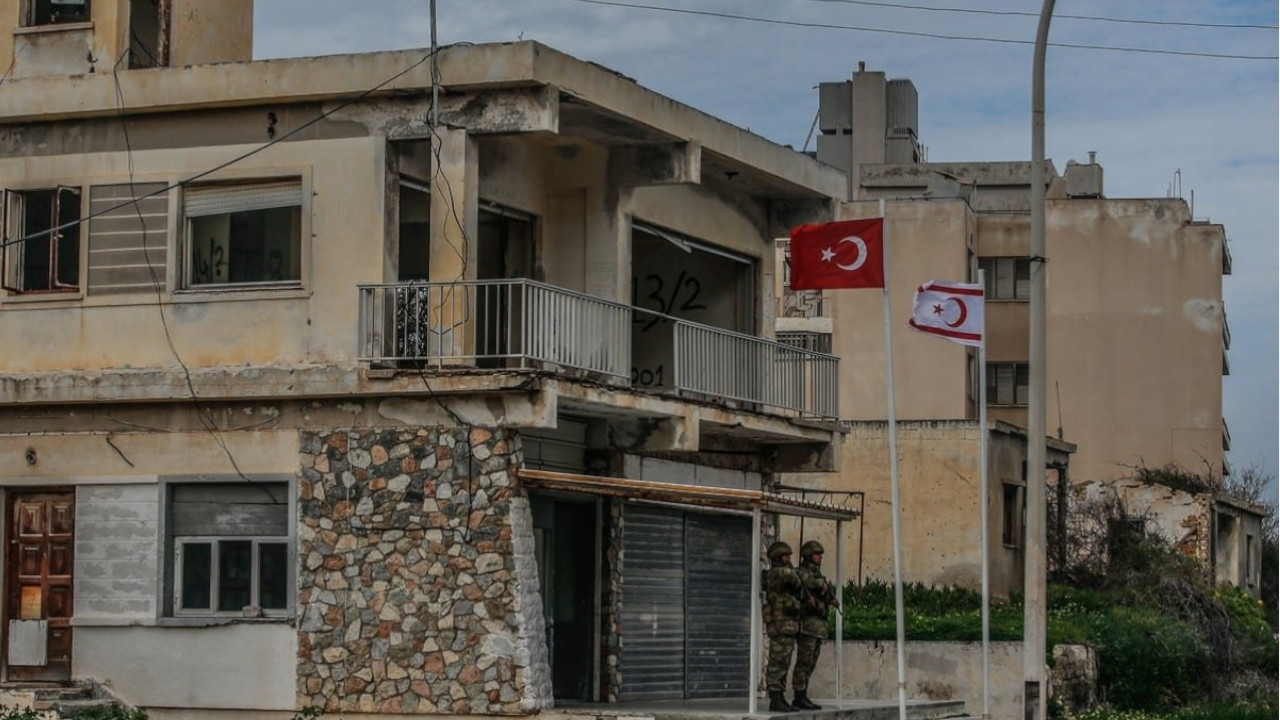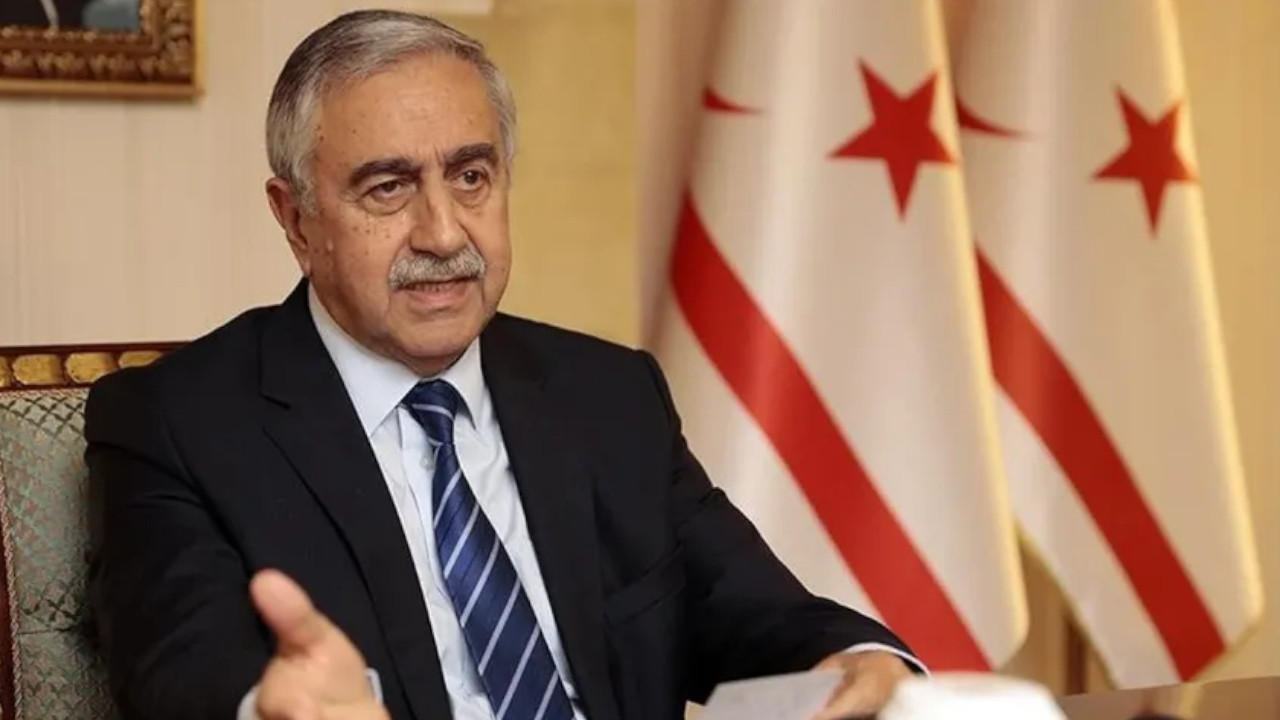Erdoğan's Cyprus bet backfires - or maybe not
Erdoğan’s latest foray into Cyprus is a low cost, low budget stunt to ignite an additional slow burning artificial crisis. It offers a renewed opportunity to threaten his counterparts in the EU and creates an environment to at worst keep things as they are and at best to wring more concessions; hence is a domestic win-win.
Erdoğan tweaked and adapted his foreign policy behaviour lately to not go against the grain of the West while his robust rhetoric at home steady. Or rather, he felt it to be rational to play along with Biden’s US administration as the EU abdicated since its’ Council meeting at the end of December 2020. For the EU, Turkey is now a candidate country only on paper. Instead, it is transformed to a giant frontier warehouse where millions of refugees, yesterday from Iraq and Syria, today from Afghanistan will be parked –paid for and the courtesy of the EU.
The very same EU’s own member countries’ especially left leaning parties, from the centre social democrats to the greens had the cheek to blame their Turkish counterparts’ reaction to the trickling but increasing in numbers arrival of the Afghan immigrants on the Turkish soil by labeling it racist or even fascist. Yet, they themselves refrain from lifting their little finger to put pressure on their own governments in order to find smarter and more humane solutions to the global refugee crisis. What is more, global warming will only and most definitely increase the number of humans on the move in the mid to long term.
The U.S. too has its own immigration problem. The assignment of that thorny file to VP Kamala Harris by President Biden stands as testimony to the priority on the agenda and the scale of the problem. But beyond the fate of the few embedded local interpreters with its army in Afghanistan, the American immigration is unrelated in its’ origins to the EU one. On the contrary, as with the EU’s relations with Turkey’s is downsized to the single immigration dimension, the US’ Turkish relations took on a monochromatic outlook as Turkey is considered not a strategic ally but a transactional partner to contain Russian and Iranian ambitions in the same region.
For both -the EU and the US- Turkey is also an indispensable counterterrorism partner. This, in a way, is welcome news (if it’s “news” at all) for Ankara, for Turkey considers counterterrorism as an “existential” issue. But for Turkey the primary source terrorism to counter is the one that it considers separatist Kurdish violence stemming both from the PKK and its’ Syrian affiliate YPG. The other contradiction is that Turkey has a voracious appetite to militarily step over its own frontiers onto Iraq and Syria as it is also capable and willing to wade into conflicts in far flung places from Qatar to Libya, from Qarabagh to Somalia. Whereas, while the lone exception of France converts its combat Barkhane operation to advisory Takuba, the US adopts a “burn in hell and I couldn’t care less” attitude vis-à-vis the MENA while it focuses all its energy to counter China.
In other words, the immigration issue serves both the EU’s and Turkey’s leaderships’ short-sighted and self-centred interests. For the EU, it helps keeping that magic but fragile “stability” in place as it also seals Turkey effectively out the EU. For Erdoğan, it helps shrugging the responsibility of being left out in the cold and shields his authoritarian regime from unwanted western scrutiny. The timely offer of taking over the security and to continue the management of the Kabul International Airport “de facto” defused the US threat of S-400 /CAATSA sanctions as it offered a well longed for subject of re-established dialogue. Both the EU and the US turn a blind eye to the on-going (eternal perhaps?) and widening and deepening Turkish military operations in Iraq as well.
The immigration issue thus offers a most welcome “give and take” angle to Erdoğan. And this, to my mind, is the main background to the sudden tension creating in Cyprus. It is not an “unforced error” that will sour the difficult equation recently found in theatres such as the East Med and in files such as the bilateral relations with Greece, as many pundits think it is. On the contrary, it is considered by Erdoğan as a compliment to the wide U-turn that he undertook in foreign policy in 2021. In Turkish, we have a saying that means –if literally translated: “The baby who doesn’t cry doesn’t get to get milk.” Unless one creates trouble, artificial or not, one does not get to sit at the negotiation table.
It may as well be construed that Ankara miscalculated by presuming a “businessman-like” approach from Anastasiadis and a docile if not supportive reaction by Johnson’s post-Brexit UK to Erdoğan’s unilateral Cyprus initiative. One also can write the attempted discarding of the ossified UN parameters off within the same breath as replacing the Copenhagen criteria with custom made “bon pour l’Orient” Ankara criteria, the withdrawal from the Istanbul Convention to replace it with national legislation, the stubborn refusal to approve the Paris Climate Agreement, the absurd procurement of S-400 air defence systems from Russia for the sum of 2.5 billion USD while being a NATO ally at the same and so on and so forth.
At the end of the day though, what Erdoğan did was to organize a pompous media opportunity with his “bayram” visit to Cyprus. As is his custom, he deliberately heightened the hype beforehand. What followed was a solemn statement at the Turkish Republic of Northern Cyprus (TRNC) parliament to build an extravagant complex to house the TRNC’s presidency and parliament. According to Erdoğan’s declared reasoning, once completed, people will have a look at the project and say “wow, now that’s some state...” The other news was to re-change the name of the TRNC to Cyprus Turkish State as it was registered in the ill-fated Annan Plan.
Many read these two steps as harbingers of a future Crimea style annexation or Hatay style accession. The same UK which was supposed to be forthcoming to such news according to plan, if there ever was one, tabled the text of the UNSC presidential statement regretting and rejecting such steps. Which in turn gave the opportunity to the MFA to come up with a gem of a press statement even by its own recent standards. It manages to lump together both the UNSC and the EU as a “motley crue” and laments their lack of vision and knowledge. It is also telling that the TRNC opposition abstained from attending Erdoğan’s speech at the parliament exposing the limits of Ankara’s aspirations to play puppet-master on the island in particular and in the region at large.
Erdoğan revels playing the difficult neighbour and the transactional partner with the West. That role renders him as being indispensable. The harder bit for him is the other front including the KSA, Egypt, Israel, the UAE as one cannot pose as the leader of the oppressed ummah and a statesman to be taken seriously at the same time. Increasingly relations with Russia show signs of distress too. What is more, Taliban seems not to be waiting Turkey’s proposed military presence in Kabul with open arms. Erdoğan’s claim that “we” have no difference with the Taliban in terms of creed did not go down well least to say with women and with a large defiantly secular and nationalist section of the population in Turkey.
A constant search for the republican identity drives Turkey’s spasmodic foreign policy. When all the attempts of asserting power are left behind Ankara turns to Kurdish and Cyprus issues as it did since decades. The self-styled “establishment” in Ankara which time to time puts on its dark “deep state” frock finds its’ very “raison d’être” in both files. According to this self-appointed praetorian guard these should be approached as being national security files and any political solution which by default means an imperfect solution is anathema to them as this would purportedly dynamite the existence of Turkey.
In sum, Erdoğan’s latest foray into Cyprus is a low cost, low budget stunt to ignite an additional slow burning artificial crisis. It offers a renewed opportunity to threaten his counterparts in the EU and creates an environment to at worst keep things as they are and at best to wring more concessions; hence is a domestic win-win. It is also more than handy within the perspective of looming early elections. One more thing though, there appear to be “unknown unknowns”: We are all familiar with the Faustian deal with the EU to keep the western doors firmly shut but it is quite difficult to fathom why Ankara nowadays keeps its eastern borders wide open for more Afghan refugees to come. Perhaps, somebody is in the kitchen and there is more roast in the oven.
Last but not the least, it is true that “getting Turkey right” for the EU and the US may be a much narrower and secondary foreign policy goal than containing China and to a lesser extent Russia, than creating a global enterprise to slow and solve the climate crisis, than coming up with an ingenuous response to immigration. Nevertheless, relations with Turkey should, first and foremost for the sake of the West, not be diminished to the single so-called “security” and “stability” dimension. A fully democratic Turkey would be an inspiration for secularism and pluralism in its stormy neighborhood.


 UN Security Council condemns Turkish plans to reopen VaroshaDiplomacy
UN Security Council condemns Turkish plans to reopen VaroshaDiplomacy Former Turkish Cypriot leader protests Erdoğan's plans for new presidential complexDiplomacy
Former Turkish Cypriot leader protests Erdoğan's plans for new presidential complexDiplomacy